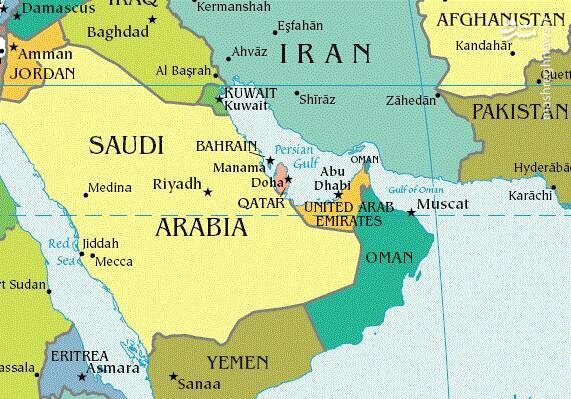Arab states should avoid an arms race with Iran: article

The Trump administration's efforts to expand them in the Security Council ended in an embarrassing American failure, as did efforts to mobilize the grievance mechanism under the 2015 nuclear deal, Hussein Ibish, a senior scientist at the Arab Gulf States Institute in Washington, wrote in the opinion piece on Oct. 23.
The president of the Islamic Republic, Hassan Rouhani, described the expiry of the embargo as an important achievement of the nuclear deal. In theory at least, Iran is now back on the market to buy and sell conventional weapons. Russia and China strive to deliver advanced jets, tanks, and missiles.
This is alarming for the Persian Gulf Arab neighbors, and especially for the main adversaries Saudi Arabia and the United Arab Emirates. They will be tempted to enter an arms race with Iran, using their deeper pockets - and easy access to American weapon systems - to maintain their significant technological lead over Tehran. It has been suggested that the UAE's willingness to purchase F-35 jets, for example, anticipates Iranian purchases of new aircraft to upgrade their air force.
However, the greatest threat to Iran's neighbors will not come from Tehran's heavy spending, but from the acquisition of technologies that improve its homemade weapons. State-of-the-art missile and drone targeting and guidance systems can help Iran inflict more damage than planes and tanks.
If the Russians and Chinese are ready to defy American sanctions - and give Tehran very generous terms - it is conceivable that the Iranians will order jets and heavy armaments. The Islamic Revolutionary Guard Corps has not been able to import advanced hardware for decades.
It may not be possible to prevent Iran from following Turkey in acquiring Russia's S-400 missile defense system, which would be a significant improvement over the existing S-300. Moscow will likely argue that the S-400 is defensive and therefore does not pose a threat to Iran's neighbors. (The Russians also want to sell it to the Arab Gulf states.)
Defensive weapons such as missile defense systems, however, are part of an overall integrated military structure and are just as important for offensives as defensive actions. Improving its capabilities in this area would significantly strengthen Iran's strategic position. Even more alarming for the Arab states are the prospects that Iran will acquire new offensive missiles and drones. Presumably, great American efforts, whether diplomatic or punitive, will be directed to preventing this.
In the medium term, however, the greatest threat would come from relatively small purchases of precision technology to significantly improve Iranian domestic production. Iran has also developed significant drone manufacturing capabilities.
His enemies have already learned the power of these missiles and drones executed by the IRGC.
In all of this, the first line of defense for the Arab Persian Gulf states will be the U.S. Treasury Department's secondary sanctions against corporations and possibly even countries that make important arms deals with Tehran. The Iranian neighbors also want to be armed against the new threats.
While the issue of F-35 sales to the UAE has made headlines lately, the EA-18G Growler is outfitted with the latest in electronic warfare technology, including jamming pods and communication countermeasures. This is the kind of weapon that Arab states want to use against more sophisticated Iranian attacks.
But the best way for the Saudis and Emiratis to respond to an Iran armed with more powerful conventional weapons, to work with the U.S. to create an effective secondary sanctions regime: the Treasury Department will do the heavy lifting, but they can help by refusing to cooperate with beings and individuals who go too far to arm their enemy. They should urge China, Russia and the former Soviet republics against equipping Tehran with greatly expanded conventional firepower.
It would also be advisable to find a way to end the dispute with Qatar and present a more unified Persian Gulf Arab front. If they are ready to be more ambitious, they should create a collective missile defense system for the Gulf of Arabia. And of course, having a robust military stance is about enabling effective diplomacy with adversaries.
All of this can be achieved without an indiscriminate, wasteful arms race.
On Tuesday, Iranian Foreign Minister Mohammad Javad Zarif called on neighboring Arab countries to choose peace, security, stability and prosperity for all instead of remaining prisoners of the past and perpetuate instability and tension in the region.
Zarif made the remarks in an address to a virtual debate of the United Nations Security Council under the title “Maintenance of International Peace and Security: Comprehensive Review of the Situation in the Persian Gulf”.
Pointing to the Hormuz Peace Endeavor—or HOPE—that was proposed by President Rouhani in his address to the UN General Assembly last year, Zarif said Iran stands by that initiative which is the culmination of various Iranian proposals for security and confidence building in the Persian Gulf region.
Zarif also said Iran does not intend to engage in an arms race in the region and start a buying spree in spite of the end of Security Council restrictions.
Source: Tehran Times

